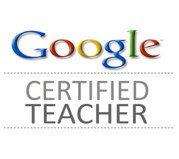Session Description:
If we assume that the schools we need are inquiry-driven, technology-infused and communities of care, what do leaders have to be to engender and nurture those ideas?
 Big ideas!
Big ideas!
Inquiry-
 Big ideas!
Big ideas!all of our classrooms should start with the questions we ask together- CL
What does this idea mean?
What does this idea mean for education?
How could this idea affect our schools and communitites?
How does this idea inform my personal practice?
•teacher guided questions leading to self-guided exploration
•inquiry as a pedagogy continues beyond school. is a real skill, process.
•not just asking questions but getting to the answer or an answer.
•teachers asking questions they don't know the answers to "What do you think?"
shared process of inquiry between teacher and student
connection between inquiries and communities of care. We know the content but they (students) know themselves. We can inquire about them.
What does "technology infused" mean?
•technology not independent of the content/pedagogical structure
•how do we leverage what kids are already using/doing with tech?
•can't be "the schools we've always had + technology"
•ubiquitous and invisible
•learning experiences going on that demand technology and can't be done without it.
•saying "I want my kids to be able to do something, what's the tool?"
"tools are transformative"
•release of control by the teacher
The ability to have these conversations and come to common ground requires a good leader. Get to common ground and then move on.
Communities of care-
difference between "I teach math." and "I teach KIDS math."
Students should never be the implied object of their own education.
mutual transparency- true motives are available to each other
care is at all levels. You can not bully teachers into caring for kids.
teachers have to feel cared for, trusted, listened to. top-down mandates will never get us to communities of care.
even when you care for people, you occasionally have to have hard conversations. caring means setting boundaries, being the adult (when talking about adults caring for kids, imposing structure and discipline).
Enabling is not caring.
Leadership- in order to transform a school where do you start?
Start by listening.
what do we do well?
what do we all want to do?
people want to make meaning together. someone who will take their ideas and synthesize them. Then lead.
You have to carve out the time and space for care. It doesn't fit neatly into the academic calendar, but you must make time for it. Structural change- at SLA every student has an advisor, someone whose job it is to know and care for that student. "The curriculum is the community."
"managing up" -teach our leaders how we want things to be. coming to people with solutions they can own. building trust and bridges.
Visioning: Developing Ideas
Modeling: How can leaders publicly live these ideas?
-articulating vision and starting discussion around vision, values
Whatever we want our kids to do, we have to allow our teachers to do.
Servant Leadership: Top Down Support for Bottom Up Ideas
We should be able to say to teachers "How can I help?"
Leading? How do we get everyone on board?
consensus-driven decision making doesn't mean we all agree completely. It means we are all willing to come to consensus and move forward around a shared decision.
requires:
honesty
transparency
a subjugation of ego
Sustaining:
How do we build systems and structures?
go into a school, ask what their mission statement is and ask them to prove it.
what are the systems and structures that support and sustain it?
Good leadership says, "Here are the systems and structures that will enable any teacher who is willing..."






No comments:
Post a Comment